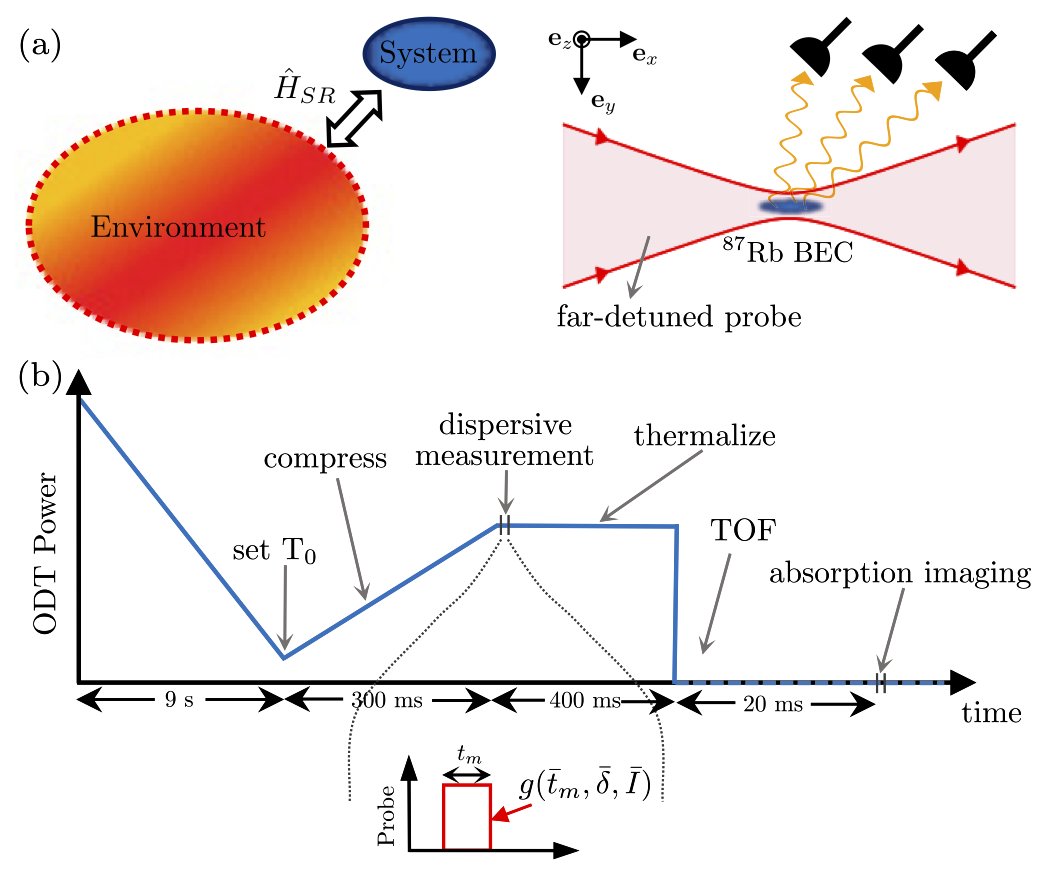Weak-measurement-induced heating in Bose-Einstein condensates

Ultracold atoms are an ideal platform for understanding system-reservoir dynamics of many-body systems. Here, we study quantum back-action in atomic Bose-Einstein condensates, weakly interacting with a far-from resonant, i.e., dispersively interacting, probe laser beam. The light scattered by the atoms can be considered as a part of quantum measurement process, whereby the change in the system state derives from measurement back-action. We experimentally quantify the resulting back-action in terms of the deposited energy. We model the interaction of the system and environment with a generalized measurement process, leading to a Markovian reservoir. Further, we identify two systematic sources of heating and loss: a stray optical lattice and probe-induced light-assisted collisions (an intrinsic atomic process). The observed heating and loss rates are larger for blue detuning than for red detuning, where they are oscillatory functions of detuning with increased loss at molecular resonances and reduced loss between molecular resonances.
Weak-measurement-induced heating in Bose-Einstein condensates; E. Altuntaş and I. B. Spielman; Phys. Rev. Res. 5 023185 (2023). doi:10.1103/PhysRevResearch.5.023185
